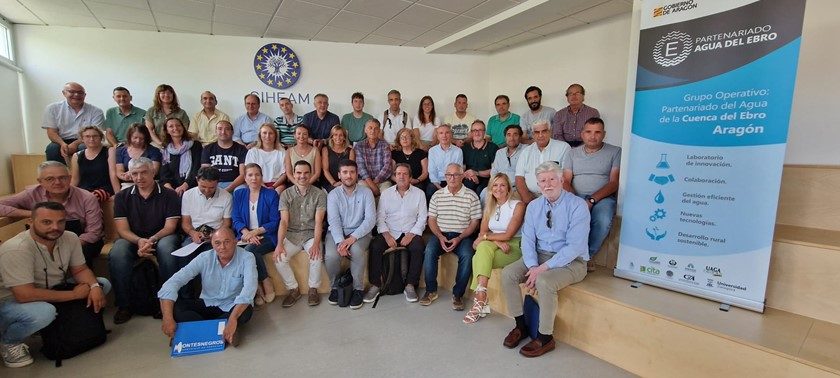The RAMA group has participated in the workshop on governance in irrigation water users associations organized by the Ebro-Aragón II Water Partnership. This initiative is included in the Cooperation Projects between agents of the agricultural sector PDR 2014-2022, financed by the Government of Aragon and the EFARD funds. The workshop took place on the morning of July 7 at the headquarters of the Mediterranean Agricultural Institute of Zaragoza (CIHEAM).

The workshop program was as follows:
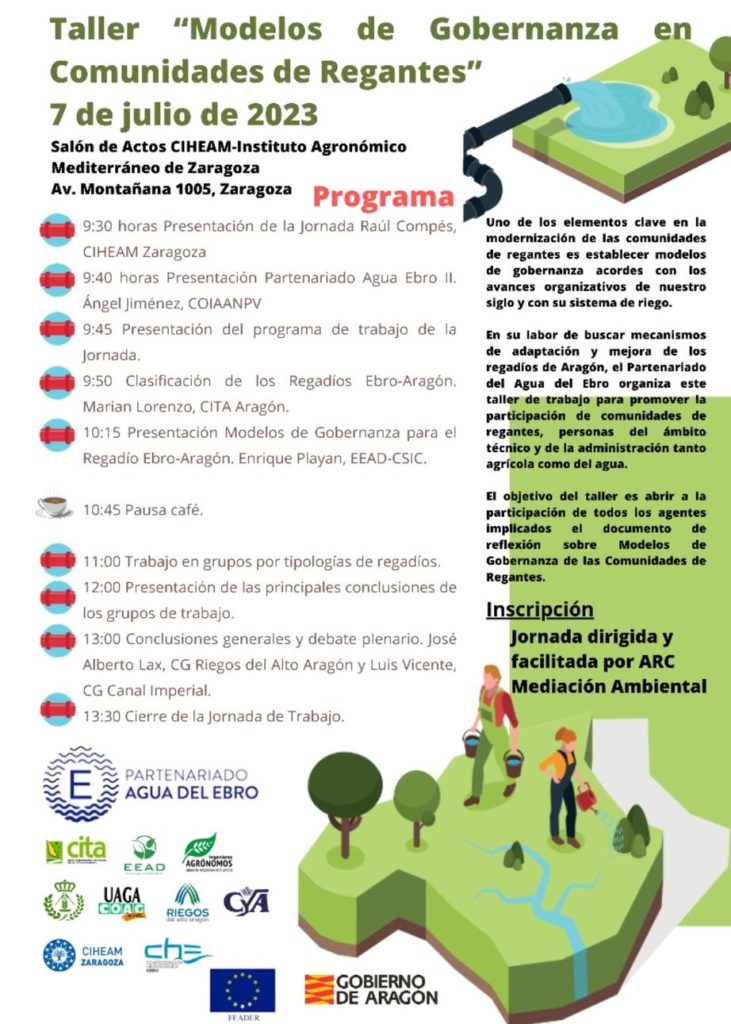
The workshop was directed and facilitated by ARC Mediación Ambiental. The Partnership has issued a press release that we reproduce below:
MORE THAN 50 PERSONS PARTICIPATE IN THE WORKSHOP ON GOVERNANCE IN IRRIGATION WATER USERS ASSOCIATIONS.
Satisfaction following a day of cooperation and interaction
The workshop “Governance and Modernization in the irrigation of the Ebro in Aragon” organized by the Ebro Water Partnership, has had the participation of 50 people, with broad representation of irrigation water users associations, administration and technical managers. Throughout today’s session, the debate has focused on identifying the challenges affecting each type of irrigation as defined through the Irrigation Classification carried out by the Partnership itself and which is an innovative formula intended to be transferred to the entire Ebro river basin.
The working differed in levels of technology, modernization and irrigation systems, from the most advanced to the most traditional. Groups debated seeking those issues that need to be addressed to improve their competitiveness and to consolidate the important role played by water users associations in land management.
These challenges comprise:
- Overcoming aging, through the professionalization of water users associations, through the creation of Collective Agreements for the irrigation sector, digitization and training.
- Strengthening and enhancing water users associations and their Governing Boards, recognizing and valuing their role in the management of a common good such as water. Improving the internal communication and expanding the portfolio of services provided seeking to improve viability and social cohesion.
- Improvement of infrastructure and on-demand service, taking into account the reality of each irrigation system. The need to progress with governance systems through infrastructure audits was discussed. Collective advisory services were called for, adapting them to the different types of irrigation, prioritizing those of small size and their specific needs.
- Overcome the concept of land consolidation by looking for formulas adapted to the different types of irrigation, from “virtual” cultivation units to a greater diffusion the figure of plot excange among farmers, as presented in the Law of Family Agriculture of Aragón.
- Coordination with different agencies and between users. Particular mention to peri-urban agriculture, for its role as the backbone of urban environments and its special relationship with improving resilience. This coordination must necessarily take into account the levels of professionalization of users, taking into account the different needs in the medium and long term. Regarding the organizations, particularly the river basin organiation, with whom there is a pressing need to share challenges and consensus on how to address them.
- Implementation of water use and return flow measurement systems, taking into account the current difficulties in terms of technology for the progress of digitization and the search for a balance between measurement and pricing, taking into account the ability to pay and viability of the farming systems.
- Water reuse and aquifer recharge: two issues gaining a more active role in water management. This is due to the need to seek alternative supply sources during periods of scarcity, and to the need to improve the situation of the aquifers during periods of water availability.
- Energy management, both from the need to seek specific negotiation formulas, as well as improving the conditions for self-consumption in irrigation communities and the promotion of energy communities, and promoting the adaptation of energy regulations to the needs of irrigated agriculture.
- Economic reactivation of certain territories in decline through the generation of new business models that allow the survival of territories and the associated irrigation.
All these challenges, from which a large volume of information has been compiled – have emerged through a participatory methodology, seeking cooperation.
Now that the workshop is over, the Ebro-Aragón Water Partnership will integrate the results into a series of documents on modernization models, which will also be discussed with all interested parties.
The next steps of the project will be articulated around the problem of diffuse pollution, in which the Ebro Water Partnership is working to propose a management model associated with catchment basins, already adopted by the Ebro River Basin in its NITRACHE strategy, and whose results will be presented in September in the framework of a workshop similar to the one held today.
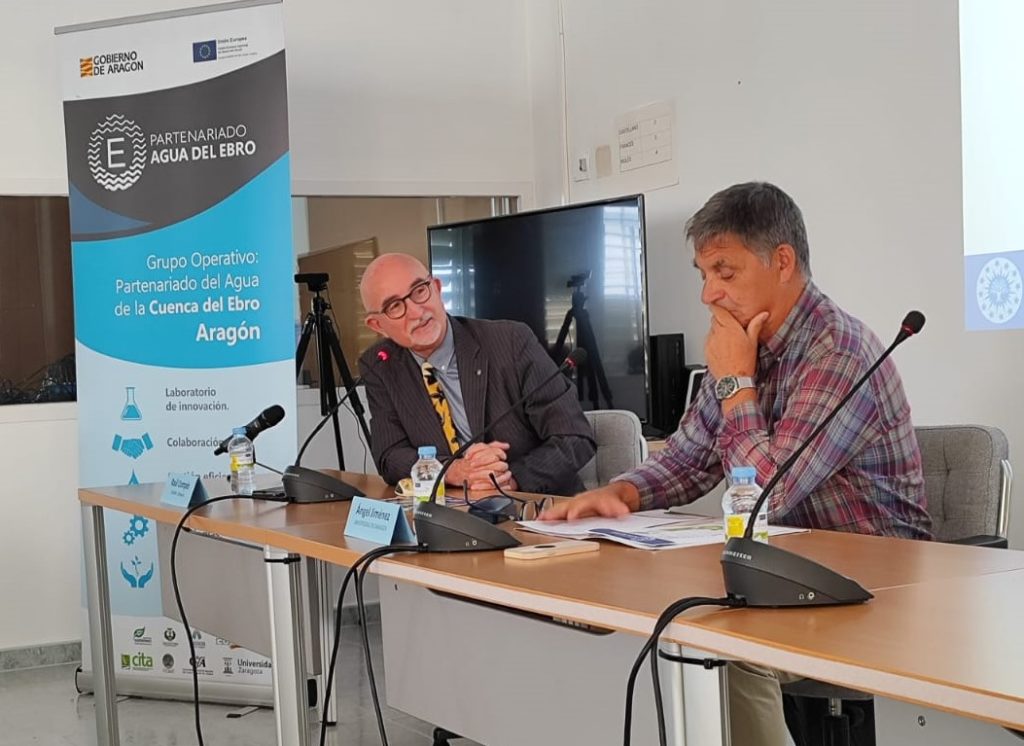
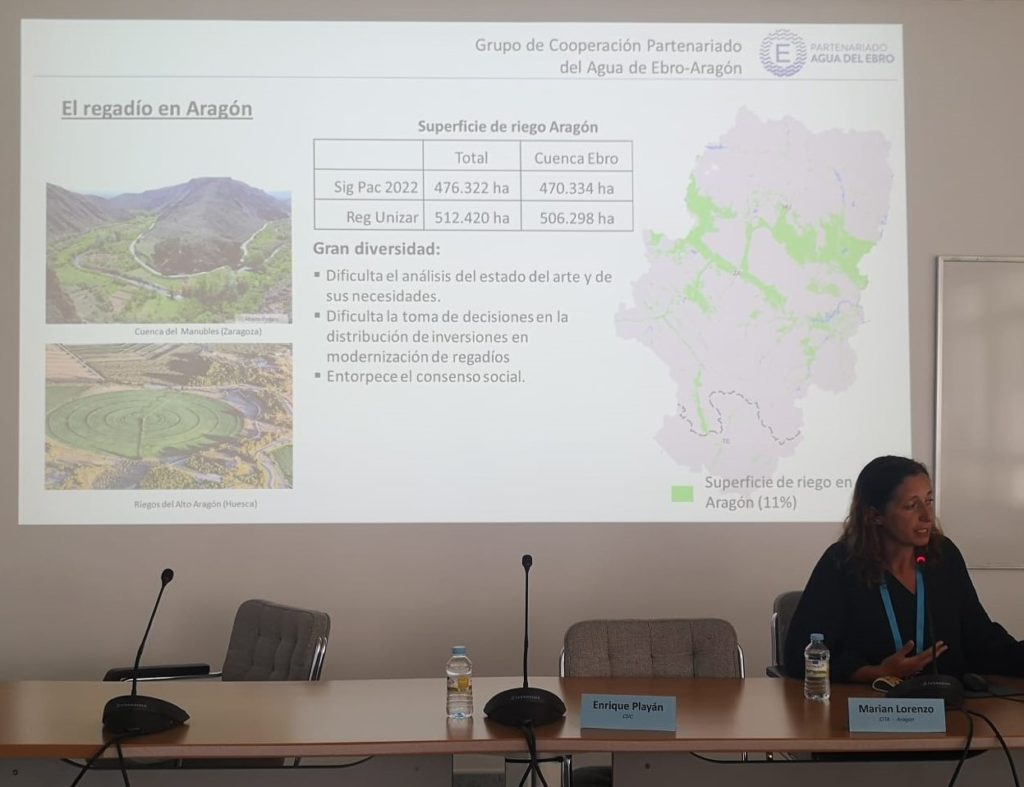
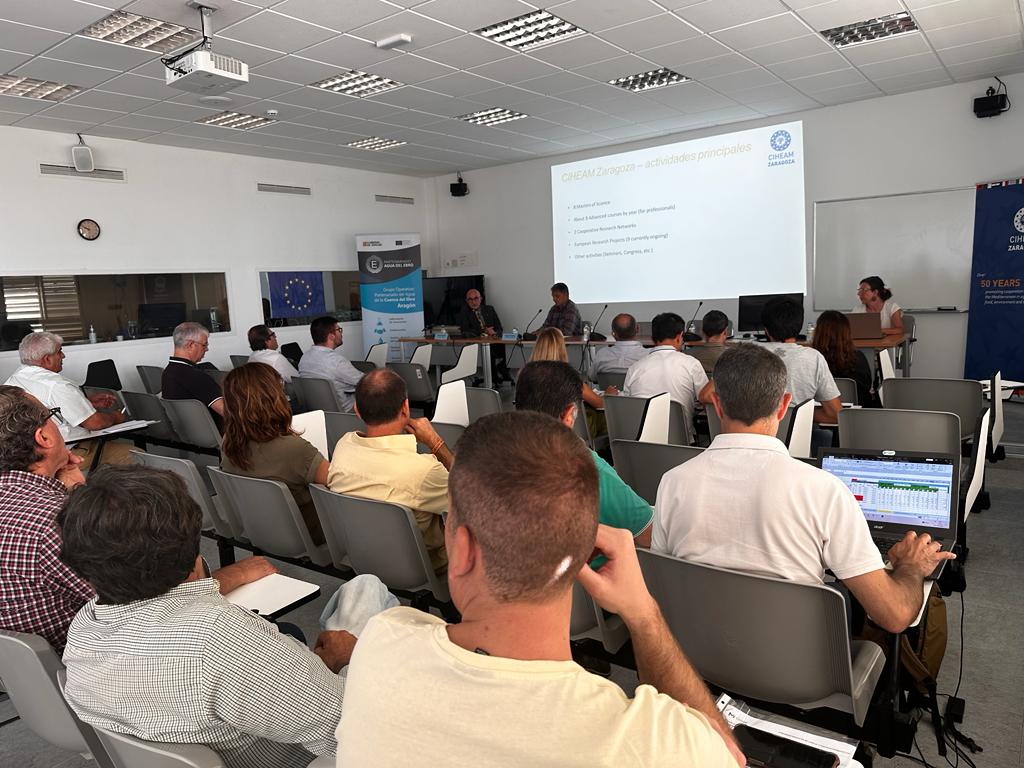
The Ebro Water Partnership is an Operational Group financed by the EFARD Funds and the Aragonese Government, included in the PDR of Aragón 2014-2021, to enhance the Governance of Irrigation Water in Aragón. It is a pioneering experience that aims to build a new perspective on the use of water based on the participation of the agents involved. Project partners include: the Official College of Agricultural Engineers of Aragon, Navarra and the Basque Country, the Official College of Agricultural Technical Engineers of Aragon, UAGA-COAG and Riegos del Alto Aragón, with the collaboration of EEAD-CSIC, University of Zaragoza, CITA Aragón, General Community of Canal Imperial de Aragón and Association of Agrifood Journalists of Spain.

